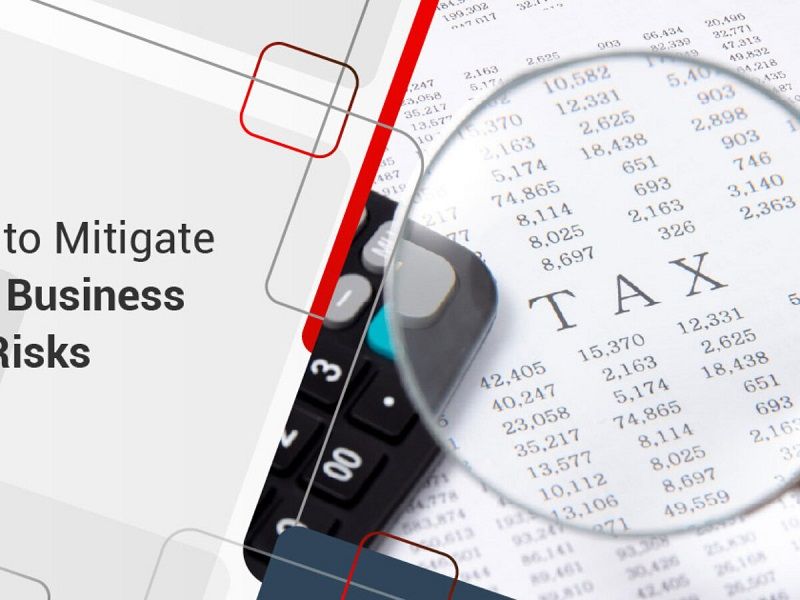Measures to prevent tax risks for Vietnamese businesses
Corporate tax risks cause a lot of damage to businesses, affecting their ability to operate and generate profits, so businesses need to identify and evaluate these risks in order to take preventive measures and minimize damage. Tax risk prevention is one of the important activities of businesses to protect assets from possible adverse events.
Tax risks are defined in Clause 1, Article 3 of Circular 204/2015/TT-BTC regulating the application of risk management in tax administration: The risk of non-compliance with tax laws, fees, charges and other revenues of the state budget by taxpayers, leading to loss of state budget revenue in tax collection management.
1. Accounting
Because business owners do not fully understand the importance of accounting and the pressure to develop business to survive is the top priority, most new businesses do not care about accounting. On the other hand, the accounting service market also has a number of individuals and units that, due to contract pressure, compete for low fees and do not fully perform accounting work according to regulations and do not advise business owners enough.
As a result, businesses are only allowed to declare taxes without full and clear accounting, accounting invoices and documents are lost due to improper storage. Even because accountants do not account but only calculate in general and do not hand over enough, the declared data may be incorrect, and the next accountant does not know how to explain when the Tax Authority inspects.
Remedy: In addition to declaring taxes correctly and fully, it is also necessary to prepare documents, account and record accounting books. Businesses should equip themselves with accounting software to ensure continuous accounting data, even if there is a change in accountant.
2. Acceptable expenses
All actual expenses incurred are recorded in accounting. However, some expenses will be excluded from deductible expenses when calculating corporate income tax. A common mistake is that enterprises include some expenses that do not serve production and business, or do not ensure that there are enough accompanying invoices and documents to explain before they are accepted.
Solution: Accountants must consult and understand the regulations on non-deductible expenses.
Businesses need to pay attention to the following to limit tax risks for their businesses.
>>>Read more: Employment contract consultant services in Vietnam
3. Invoice issuance errors
This error occurs in 2 situations: First, the invoice issuance time is out of date. Second, the invoice is not issued when providing products and services that the buyer does not need to get an invoice.
Enterprises make errors in the time of invoice issuance in some situations: service enterprises do not issue invoices at the time of receiving service fees, construction enterprises have completed acceptance procedures, and sell goods and wait for money to be collected before issuing invoices. In this case, if discovered, there may be fines for issuing invoices at the wrong time, calculating late VAT payment, etc.
Enterprises sell goods but do not issue invoices because the buyer does not take them. This does not discuss enterprises deliberately hiding taxes, there are cases where business owners and accountants do not know that doing so is wrong.
Solution: Business owners require accountants to understand and implement regulations on invoices when selling goods and services.
4. Salary and bonus costs
The actual income that businesses pay to employees includes many items, and is often greater than the basic salary stipulated in the contract to calculate compulsory insurance. Accountants often lack relevant documents and records to be recognized as deductible expenses.
In addition, small businesses may not have a person in charge of human resources, this responsibility can be assigned to the accountant. If the enterprise does not know and does not do it, it may be fined for administrative violations according to the Labor Law, Insurance Law, etc.
Solution: The enterprise owner needs to know that he is responsible for declaring labor and paying insurance for employees. If the enterprise does not have a human resources manager, when hiring an accountant, the agreement must include this part of the work.
What is Tax Risk Management and Why is It Important?
5. Advice from accountants
Risks are always there, we cannot avoid them but must predict and control as much as possible. Accountants do not dare to comment on the decisions of the enterprise owner. In some cases, they know but still do it, leading to huge risks, which the enterprise owner often does not fully anticipate.
In this case, a solid and experienced accountant will warn and advise the enterprise owner on what to do, what not to do, and what the risks may be if they do. The enterprise owner will base his decision on that.
Tax risk prevention is a necessary activity for every business operating in the market. The above article has presented the causes, consequences of tax risks and effective tax risk prevention measures that S4B Vietnam encourages businesses to apply. For more detailed information on tax risk prevention for businesses, please contact S4B Vietnam for advice and support.
S4B Vietnam
- Address: Unit 701B-701C, Tower A, Handi Resco, 521 Kim Ma Street, Ba Dinh District, Hanoi, Vietnam
- Tel: + 84 24 3974 4181
- Email: service@s4b.com.vn
——————————————–
We Will Show You The Way To Success!


